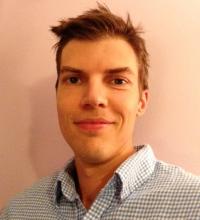In this interview, Marisa Müller offers advice for anyone looking to boost performance improvement at either the personal or team level. Learn how to stay motivated on the never-ending quest of continuous improvement.
Noel : When I was reading the abstract for your session, "The Four Dimensions of Performance Improvement," I saw where you said, "performance relies on more than just people.” Are “people” often the easiest to blame when performance may be down or lacking, and is that due to simply older ways of management?
Marisa : Indeed. The first point of blame with poor performance is the individual. It has been scientifically proven that only fifteen percent of performance issues are related to the individual. The rest is a varying combination of work: processes, structure, environment or culture, and resources available to the employee and the world. In other words, whatever is going on the in the greater community or in the individual’s personal circumstances that influences his/her behavior. This is a totally new way of assessing performance problems and taking an holistic view of the environment the individual works in.
Noel : I also read where your own organization was able to “close gaps” and “add value” by looking at some of these additional performance improvement processes. Could you briefly share some of those places you all found room for improvement, and the actions that were taken?
Marisa : We found that people, both within the team and in the greater project team, were not talking to each other. We facilitated those conversations and introduced the Power of 3 to get BA’s, testers and developers sharing and communicating with purpose and understanding. We found that test processes were not clearly defined and other teams were not aware of what the test processes involved and could therefore not contribute successfully. Once they were aware of the test processes, their level of contribution and understanding improved.
The project teams lacked synergy due to the individual teams operating in silo’s, and once they were aware of the big picture, it facilitated their working together, it closed gaps, eliminated duplications and overlaps. We found that there were individuals doing jobs or fulfilling roles that did not play to their strengths. We identified strengths and ensured that tasks and roles were allocated accordingly to make the most out of the team.
Too much time was spent in meetings—meetings that discussed the same things but with different attendees, and too many representatives from one team in a single meeting. We spread these out more and ensured that meetings had clear agendas and did not duplicate. We also improved the feedback process after meetings.
Noel : You use that classic reference to “demotivated testers,” as well as that much newer, much more positive call for empowerment. I’ve read a lot about ways to empower developers, but I’m curious as to what are some of the benefits that are leading testers to feel that same level of empowerment?
Marisa : It’s all about giving them the big picture view, involving them in decision making and problem solving and acknowledging and recognizing their value. It’s about stimulating their creativity and motivating them through recognition and showing appreciation for what they bring to the team. It's about mutual respect and having proper processes and structures in place that ensure people are heard and that problems are escalated effectively to facilitate the overcoming of obstacles and dealing with challenges. It’s realizing that an individual is part of the team, but also that they have their own individual ambitions and need to learn, grow, and develop.
Noel : Your bio says that you’ve been perfecting a performance improvement process for the last six years—which is a length of time that shows not just your dedication, but also your belief in the need for this process! I’m curious though, what will ultimately perfect this process, or could it end up being a lifelong endeavor?!
Marisa : I believe that improvement is an ongoing process and we should always seek to improve the way we do things, working smarter, not harder. Communication always requires deliberate effort from all members of the team. In my organization, people management facilitates people management processes, initiatives and drives through on employee engagement consistently. Our work is never done as change is inevitable—whether it’s the people on the teams, the clients, or the new technology, our employees are working with. It’s dynamic and we have to be agile in adapting ourselves and equipping our employees to adapt.
Noel : Lastly, for those that attend this session of yours who perhaps are not a part of management, or in a leadership position—what’s the best way for testers to relay this information to management to see that its actually carried out for the benefit of not just their team, but for the company as a whole?
Marisa : I believe if the message around realizing that performance depends on four dimensions, and not one, then it can be delivered by those that have attended my presentation. It already opens up a whole new approach to performance improvement. If they can share that with their team and their management—just using my presentation slides—it will already create the awareness and hopefully a new perspective of how they solve performance problems.
 Marisa Müller is director of people management at Micro To Mainframe (Pty) Ltd., a well-established professional software testing services company in Johannesburg, South Africa. MtoM provides specialized testing services generally in the banking and finance sector. Marisa has spent the last six years perfecting a performance improvement process for testing teams, improving testing service delivery in corporate environments.
Marisa Müller is director of people management at Micro To Mainframe (Pty) Ltd., a well-established professional software testing services company in Johannesburg, South Africa. MtoM provides specialized testing services generally in the banking and finance sector. Marisa has spent the last six years perfecting a performance improvement process for testing teams, improving testing service delivery in corporate environments.



